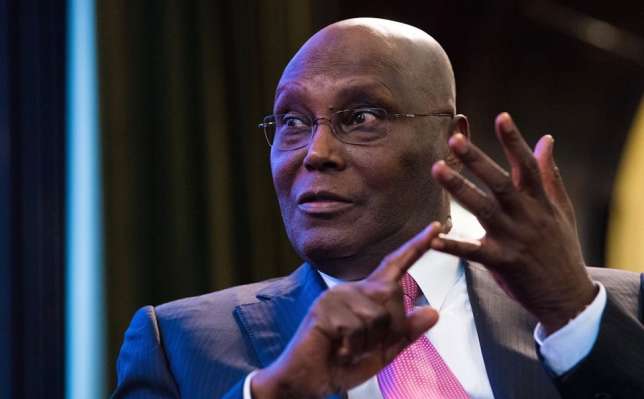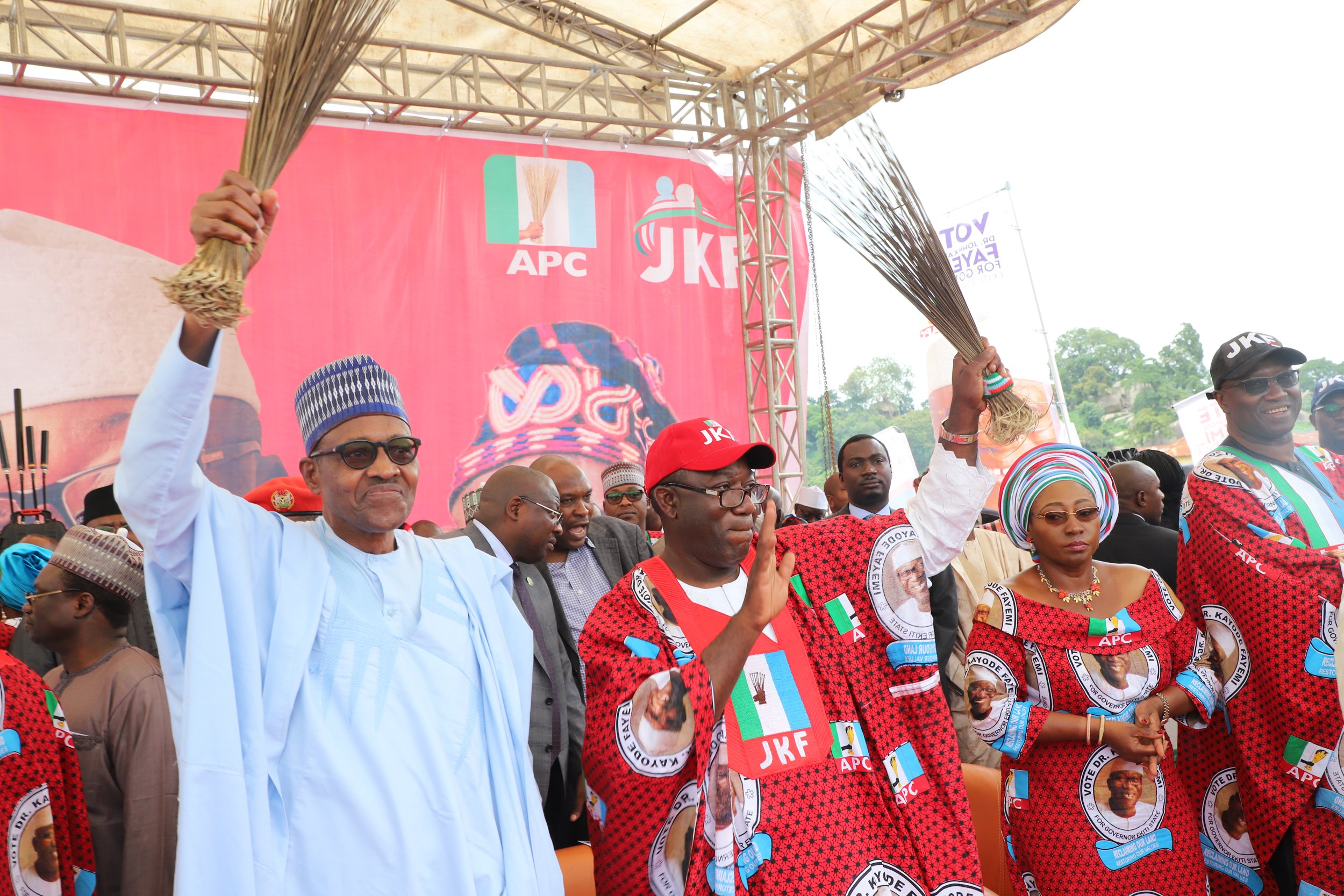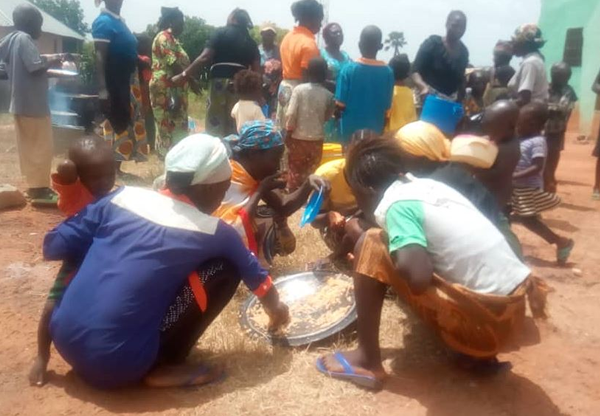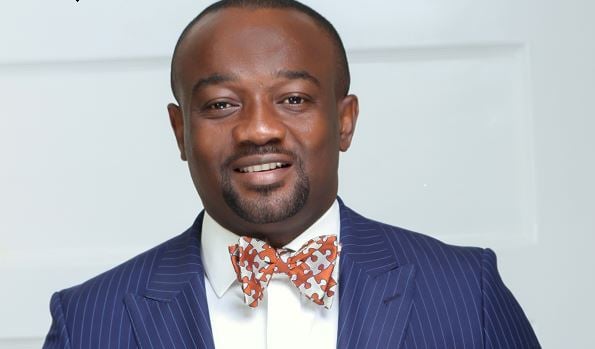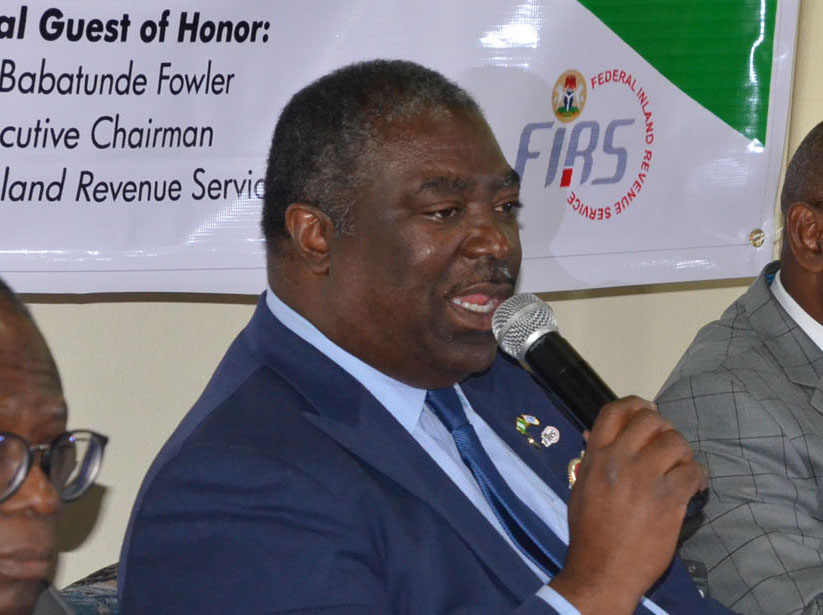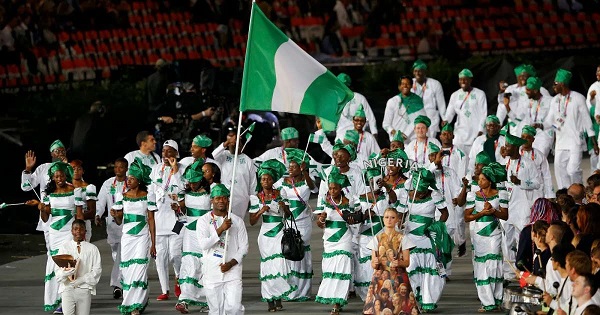BY ETHELBERT OKERE
The All Progressives Congress (APC) and the Buhari presidency would have since began to concoct another lie to tell the people of the Southeast, if you like, the Igbo following, the recent declaration by former vice president, Atiku Abubakar, that he will do only one term of four years if elected president next year.
Atiku, unarguably the most visible and most highly rated presidential aspirant in the current season, had, in a recent interview with a Nigerian newspaper, reportedly said: “… I have said it before on my own initiative… if I am elected as the president in 2019; I give an undertaking that I would only do one term… I am prepared to sign an undertaking to do only one term”.
Reminded by his interviewers that President Muhammadu Buhari made a similar pledge in 2011 but has reneged on that, Atiku Abubakar responded as follows: “I am not Muhammadu Buhari. I do not make promises I cannot keep. I am assuring Nigerians that I will keep this promise. I am making it out here in the open. I am willing to sign a written document. If you or any other Nigerian can come up with an iron-clad legal document that binds me, I am willing to publicly commit to it”.
The above declaration by Atiku Abubakar is of immense significance on Nigerian’s national politics, especially with regards to the 2019 presidential election but its immediate implication is that it effectively punctures the dummy President Buhari’s strategists were selling to the people of the Southeast namely, that only the re-election of Buhari will guarantee the emergence of an Igbo as president (of Nigeria) in 2023.
Advertisement
According to this narrative, Buhari is the only Northerner who will mandatorily vacate office in 2023 thus paving way for an Igbo to take over. Any other candidate from the North, they argue, will want to do eight years in office, thereby delaying Igbo ascendency to the Nigerian presidency till 2027.
As a matter of fact, it was some Igbo elements that – for want of what to tell their Igbo brethren in canvassing for their support for Buhari’s re-election bid – initiated this narrative, namely that the Nigerian presidency will be theirs in 2023 after Buhari’s second term. It must have been this position taken by Igbo leaders themselves that enabled President Buhari to formally approach the Igbo with his dummy to ensure their ascendancy to presidential power in 2023 as a reward for their support for his re-election in 2019.
President Buhari made this undertaking through one of his closest aides, Mr. Boss Mustapha, the secretary to the federal government, at an APC rally in Owerri, Imo state on July 5, 2018. Even though Buhari, speaking through Mastapha, was cautious and deliberate in his choice of language, his message was clear. This was how Mustapha put it across: “What happens in 2019 will go a long way in determining the fate of the Igbo as it concerns 2023 presidency… so it is important that they put away sentiments in the overall interest of the Igbo nation and ensure that the APC gets a landslide victory in the Southeast”. Somewhere in the course of his speech, Mr. Mustapha also reportedly said as follows: “let me say this, 2019 is an election that will make or mar the chances of Igbo in Nigeria…”
Advertisement
Of course, Mustapha (though he was believed to be speaking the mind of the president) was severally reprimanded for his insinuations. He was told in black and white that the Igbo do not, and will never, predicate their future on the re-election or otherwise of the president. More importantly, the Igbo in general made it clear that they were neither enamored by the promise of the 2023 presidency nor were they convinced that President Buhari is or will be in a position to determine who will become Nigeria’s president in 2023; or from which section of the country he or she will come from. But even so, the latest pronouncement by Atiku has put a lie to all that. Consequently, Buhari’s strategists must be looking for something else to the Igbo. However, his avowal to do only one term of four years transcends its repudiation of the proposed 2023 Greek gift to the Igbo. Among other things, Atiku’s assurances will have implications on the concern of the younger generation of politicians over their limited access to political power.
Although this writer in particular is not enthusiastic about things like the not-too-young to-run mantra, Atiku’s pledge to do one term of four years will lower the anxiety of the younger politicians who were initially worried that the involvement of people of his caliber and age will once again deny them the opportunity of ascending presidential power as earlier as next year.
While it is yet morning on creation day as far as the 2019 presidency is concerned, even the least discerning observer can notice that the possibility of a thirty something-year old emerging the president of Nigeria next year is quite remote. But Atiku’s four-year term will be a bridge between the past and the future as well as the old and the young. In a previous article (titled, Outside Running, One Else Can Nigerian Youths Do?), I argued that transferring power to the younger generation in a democratic setting is not something that can be achieved with the type of drama and alacrity that some of the younger elements envisage; rather, it is something that has to be deliberately packaged by the so called older politicians and delivered by them.
My view, as I expressed in that article, is that unlike in the immediate pre and post independent era, the country now has an army of well educated, wealthy and highly connected elders who, outside of a very bloody revolution, cannot be booted out of power just like that.
In my view, what the younger generation of politicians, especially those in their thirties and forties, should do is to liaise with people like Atiku who had had access to political power and who must inevitably, at least on account of age, retire from active politics between now and 2023. It is this category of people that will prepare them for taking over, more than the fifty smoothing year-olds who, because age will still be on their side even beyond 2023, would still be in contention for power at all levels Differently put, let the younger elements key into Atiku’s pledge and approach him for a formalization of an understanding that will see him play the role of a vehicle to effortlessly transfer power to them in 2023.
Fortunately, the young people have something to fall on; which is Atiku’s pedigree is canvassing for a political restructuring of the country as a sine qua non both for effective governance of the country and for the peaceful co-existence of Nigerians in the context of fairness, justice and equity.
Advertisement
If we add this to the high imperative of an orderly transfer of power to the younger generation, then we will see that the Mandela option being adopted by Atiku Abubakar is certainly not out of desperation for presidential power, contrary to the notion being created by some commentators. For example, writing recently in his popular column in the _Nation_ newspaper, Mr. Idowu Akinlotan, made the following observations about Atiku: “The country seems to have made up its mind cruelly against him, bewitched by propaganda and half-truths that are closer to fiction them reality”. Then the columnist concludes thus: “This may be why Alhaji Abubakar, perhaps out of desperation than anything else, is promising to do only one term should he be elected president…”
Yet in the next paragraph, Mr. Akinlotan writes as follows: “The former vice president has demonstrated enough courage and COMPETENCE (emphasis mine) to rule Nigeria far better than past presidents should he be offered the chance. But he has made enough enemies, some of them better and intransigent, to deny him the ultimate prize. He will need a miracle to get the ticket and greater miracle to win the election. Nothing is impossible however. But given the present mood of the country, few Nigerians are willing to make him more than a cipher in the race, even if he were to promise utopia and eternal life”.
Now, let us look at an earlier passage in the same article entitled, “Atiku’s One-term Presidential Gambit” .Akinlotan wrote: “But hate him or love him, he is exposed and cosmopolitan, far more than President Muhammadu Buhari and with extensive contacts around the country. He is far better than the president in mentoring. He is also far more cerebral than the president, possessing a capacity to engage meaningfully in group discussions and managing at the end to own the ideas peddled in those ardent and sometimes recondite fora. He is not a philosopher…but he possesses passing understanding of current national issues sufficient enough to help him navigate crises and propound solutions.”
If we place the above passages side by side, we will immediately see them repudiating each other. Within the passages themselves we will also see contradictions between lines. But I hasten to add that it is not necessarily the writer contradicting himself. It is the testimonies he is giving about our dear country that are contradicting each other. For example, in a clime where sanity prevails, the same fellow cannot “demonstrate enough courage and competence to rule Nigeria far better than past presidents…” and at the same time “… needs a miracle” to win an election. A typical outsider will ask: “what type of people are these?”
Advertisement
Nigerians, as attested to by Akinlotan, acknowledge that Atiku Abubakar “is far better than the president (Buhari) at mentoring… more cerebral than the president, possessing a capacity to engage meaningfully in group discussion… possess passing understanding of current national issues sufficient enough to help him navigate crises and propound solution… “.Yet, it is said of the same Atiku that “the country seems to have made up its mind cruelly against him”. Again a typically outsider will ask: “Which country is this?” But even more puzzling to the outsider would be when he reads just in the next sentence that the reason for this cruelty is that the citizens are “bewitched by propaganda and half truths that are closer to fiction than reality”.
I would recommend Akinlotan’s column (_The_ _Nation_, Sunday August 19, 2018) to every well meaning Nigerian because it tells the story of Nigeria more than it is a commentary on Atiku’s apparent desperation at getting elected president of Nigeria next year. I believe that every well meaning Nigerian would, upon reading the article, ask himself: Is this the image we should cut as a people? A people “bewitched”, as Akinlotan puts it, “by propaganda and half-truths that are closer to fiction than reality”? Atiku or no Atiku, is that how Nigerians want to be characterized?
Advertisement
One final irony, however: The article in questions reads conclusively as follows in the last sentences: “The former vice president has demonstrated enough competence to rule Nigeria… but he has made enough enemies… to deny him the ultimate prize…”. My take here is that apart from that the above quote repudiates the overall image the writer painted about Atiku, as “cosmopolitan”, a “ better mentor”, “exposed”, “possessing more capacity to engage” etc, it is not true, at all, that he has “made enough enemies”. It is a hyperbole which the writer needlessly resorted to. Pray, who are these enemies of Atiku? What is their numerical strength? Differently put still, is it only “enemies” that Atiku Abubakar has in a country where he has been earlier described as having “so much reach”? As I write, there are over 1,000 support groups across the country working for Atiku’s presidential bid; all independently of him and footing their own bills.
In employing the phrase, the Mandela Option, to situate Atiku’s deliberate choice to go for only one term if elected, I am looking at the similarity between the South African society, before the late icon took over, and what obtains currently in the Nigerian society. Agreed, Nigeria is not an apartheid enclave but its citizens have no sense of belonging, are alienated from the state, some are treated as second class citizen; they kill themselves and live in a society where fairness, justice and equity have no room.
Advertisement
Just as Mandela chose to do with his own people, I believe Atiku’s burning desire is to reconcile Nigerians with one another. Nigeria requires a new president with new ideas and an enthusiasm to prove himself. Nelson Mandela was not desperate to become South African’s president. His ascendance was a historical imperative and I believe that
Atiku Abubakar’s imminent presidency is fashioned along a similar calling.
Okere, a public affairs analyst, sent this piece from Owerri
Advertisement
Views expressed by contributors are strictly personal and not of TheCable.
Add a comment
